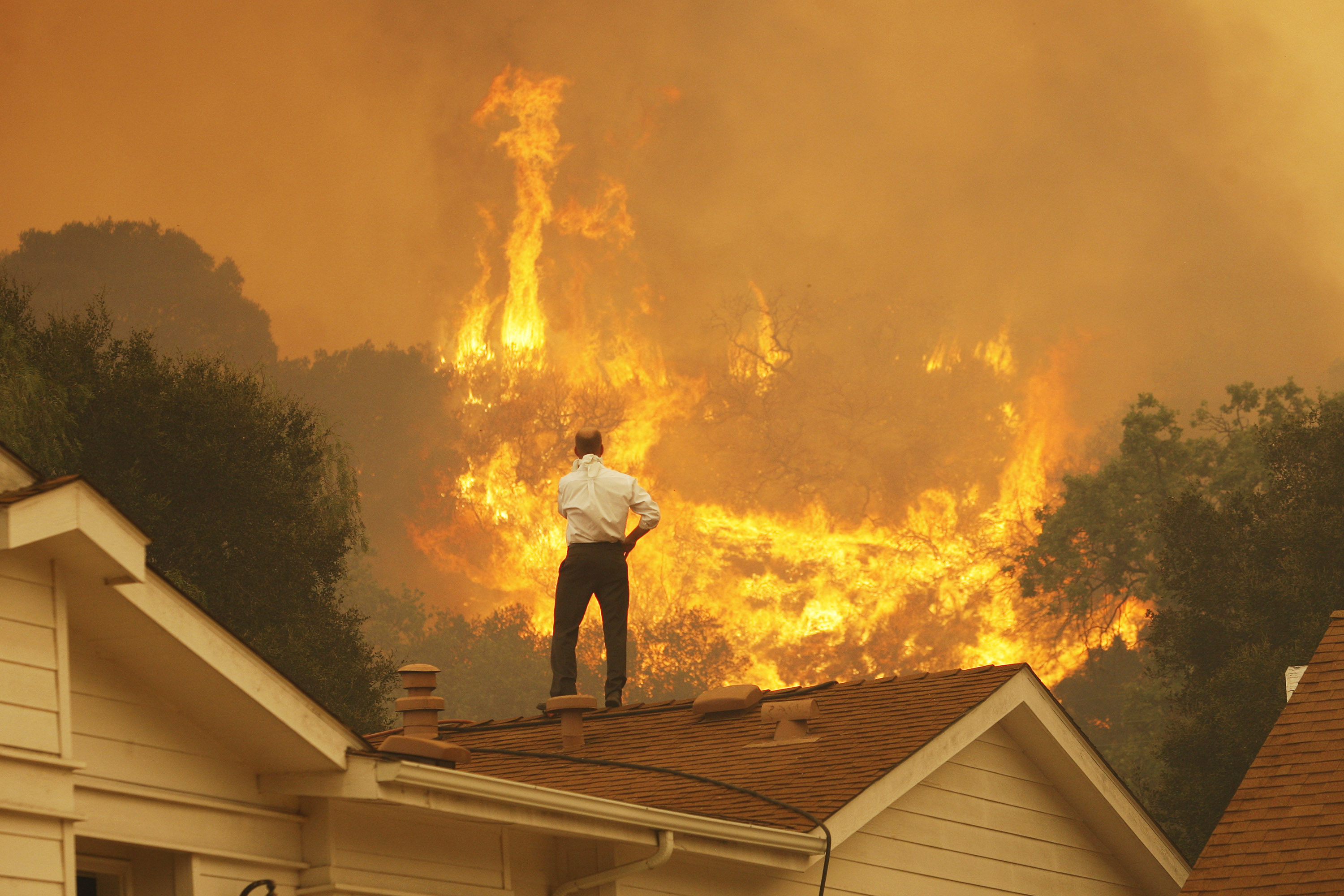EPA report warns people of color face disproportionate harm from climate change


A free daily email with the biggest news stories of the day – and the best features from TheWeek.com
You are now subscribed
Your newsletter sign-up was successful
In a new analysis released Thursday, the Environmental Protection Agency warns that if the global temperature rises 2 degrees Celsius, it will result in higher sea levels, flooding, and excessive heat — all of which will disproportionately harm Blacks, Latinos, Native Americans, and Alaska Natives.
Since the start of the Industrial Revolution, the planet has warmed 1.1 degrees Celsius, and by the early 2030s will likely warm by more than 1.5 degrees, The Washington Post reports. The EPA determined that should the Earth warm by 2 degrees, American Indians and Alaska Natives are 48 percent more likely than other groups to live in a region that is susceptible to flooding because of rising sea levels. Black people are currently 40 percent more likely than other groups to live in areas that experience extreme high temperatures that can cause death, and that number jumps to 59 percent as the planet heats up. Latinos would be 43 percent more likely than other groups to lose work hours because of high temperatures.
The report is the "first of its kind," Joe Goffman, acting head of the EPA's Office of Air and Radiation, told the Post, and one of its underlying lessons is that "so many communities that are heavily Black and African American find themselves in the way of some of the worst impacts of climate change, as was the case with Katrina and, we may find, turns out to be the case with Ida."
The Week
Escape your echo chamber. Get the facts behind the news, plus analysis from multiple perspectives.

Sign up for The Week's Free Newsletters
From our morning news briefing to a weekly Good News Newsletter, get the best of The Week delivered directly to your inbox.
From our morning news briefing to a weekly Good News Newsletter, get the best of The Week delivered directly to your inbox.
Hurricane Ida hit Louisiana as a Category 4 storm on Sunday, strengthened by ocean water that was hotter than average because of climate change. The storm caused destruction across the state, tearing roofs off of houses and bringing down electrical poles, before moving up through Mississippi and Alabama. Ida's remnants brought torrential rain to the Northeast, which caused deadly flooding in New York, New Jersey, Pennsylvania, Connecticut, and Maryland.
The EPA report's release "couldn't be more perfectly timed," Moms Clean Air Force co-founder Dominique Browning told the Post. Ida and the devastation it caused are likely a glimpse into the future, and proof that "we are in such an emergency," Browning said. Read more at The Washington Post.
A free daily email with the biggest news stories of the day – and the best features from TheWeek.com
Catherine Garcia has worked as a senior writer at The Week since 2014. Her writing and reporting have appeared in Entertainment Weekly, The New York Times, Wirecutter, NBC News and "The Book of Jezebel," among others. She's a graduate of the University of Redlands and the Columbia University Graduate School of Journalism.
-
 6 of the world’s most accessible destinations
6 of the world’s most accessible destinationsThe Week Recommends Experience all of Berlin, Singapore and Sydney
-
 How the FCC’s ‘equal time’ rule works
How the FCC’s ‘equal time’ rule worksIn the Spotlight The law is at the heart of the Colbert-CBS conflict
-
 What is the endgame in the DHS shutdown?
What is the endgame in the DHS shutdown?Today’s Big Question Democrats want to rein in ICE’s immigration crackdown
-
 How climate change is affecting Christmas
How climate change is affecting ChristmasThe Explainer There may be a slim chance of future white Christmases
-
 Blue Origin launches Mars probes in NASA debut
Blue Origin launches Mars probes in NASA debutSpeed Read The New Glenn rocket is carrying small twin spacecraft toward Mars as part of NASA’s Escapade mission
-
 Why scientists are attempting nuclear fusion
Why scientists are attempting nuclear fusionThe Explainer Harnessing the reaction that powers the stars could offer a potentially unlimited source of carbon-free energy, and the race is hotting up
-
 Dinosaurs were thriving before asteroid, study finds
Dinosaurs were thriving before asteroid, study findsSpeed Read The dinosaurs would not have gone extinct if not for the asteroid
-
 Canyons under the Antarctic have deep impacts
Canyons under the Antarctic have deep impactsUnder the radar Submarine canyons could be affecting the climate more than previously thought
-
 SpaceX breaks Starship losing streak in 10th test
SpaceX breaks Starship losing streak in 10th testspeed read The Starship rocket's test flight was largely successful, deploying eight dummy satellites during its hour in space
-
 NASA is moving away from tracking climate change
NASA is moving away from tracking climate changeThe Explainer Climate missions could be going dark
-
 Rabbits with 'horns' sighted across Colorado
Rabbits with 'horns' sighted across Coloradospeed read These creatures are infected with the 'mostly harmless' Shope papilloma virus
